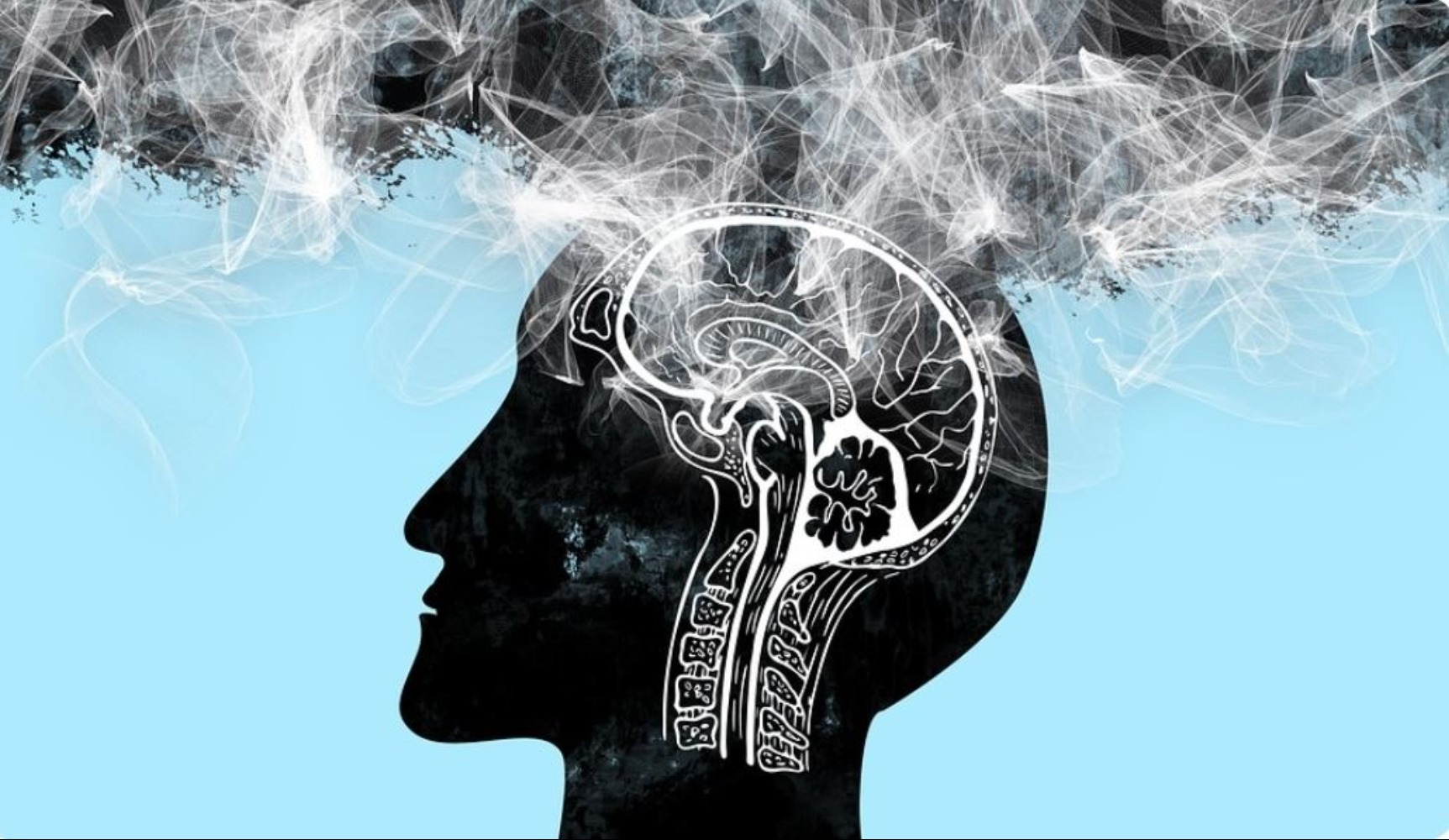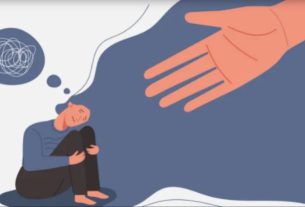Devanjana Mukherjee, Khabri Media
Dementia ranges in severity from the mildest stage, to the most severe stage and is caused due to various factors.

Pic: Social Media
An umbrella term for the loss of cognitive functioning — thinking, remembering, and reasoning — to such an extent that it interferes with a person’s daily life and activities, is called Dementia. Dementia is not a single disease. It’s an overall term to describe a collection of symptoms that one may experience if they are living with a variety of diseases.
MUST READ: 10 Health Tips to Stay Fit
Dementia ranges in severity from the mildest stage, when it is just beginning to affect a person’s functioning, to the most severe stage, when the person must depend completely on others for basic activities of daily living, such as feeding oneself. Some people with dementia cannot control their emotions, and their personalities may change.
Basic Causes of Dementia
People having similar lifestyles, habits, diseases or deficiencies might develop the symptoms of Dementia due to certain causes which have been listed below. Moreover, it is the result of changes in certain brain regions that cause neurons (nerve cells) and their connections to stop working properly.
- Hypertension (High blood pressure)
- Diabetes (high blood sugar)
- Obesity (extremely overweight)
- Alcoholism/Alcoholic (Consumption of Alcohol on a daily basis)
- Chain Smoking/ Chain Smoker
- Depression
- Socially Isolated
- Physically Inactive
- Thyroid Problem
- Vitamin deficiency
Dementia has physical, psychological, social, and economic impacts, not only for people living with dementia but also for their carers, families, and society at large. There is often a lack of awareness and understanding of dementia, resulting in stigmatization and barriers to diagnosis and care.

Pic: Social Media
Signs or symptoms of Dementia
The signs of Dementia may vary from person to person, and the level of seriousness of it. Listed below are a few symptoms
- Experiencing memory loss.
- Poor judgment, and confusion
- Difficulty in carrying on with basic skills like speaking, understanding, expressing thoughts, reading, and writing.
- Keeping track of a purse or wallet
- Remembering or recalling paying bills and appointments
- Planning and preparing meals
- Misjudging distances to objects visually.
- Problems following conversations or trouble finding words
- Repeating questions
- Taking longer to complete normal daily tasks
- Losing interest in normal daily activities or events
- Acting impulsively and not caring about other people’s feelings.
- Hallucinating or experiencing delusions or paranoia
- Wandering and getting lost in a familiar neighborhood
Kindly note that individuals dealing with intellectual and developmental difficulties might develop these symptoms in their later years and in such cases recognizing the symptoms can be difficult.
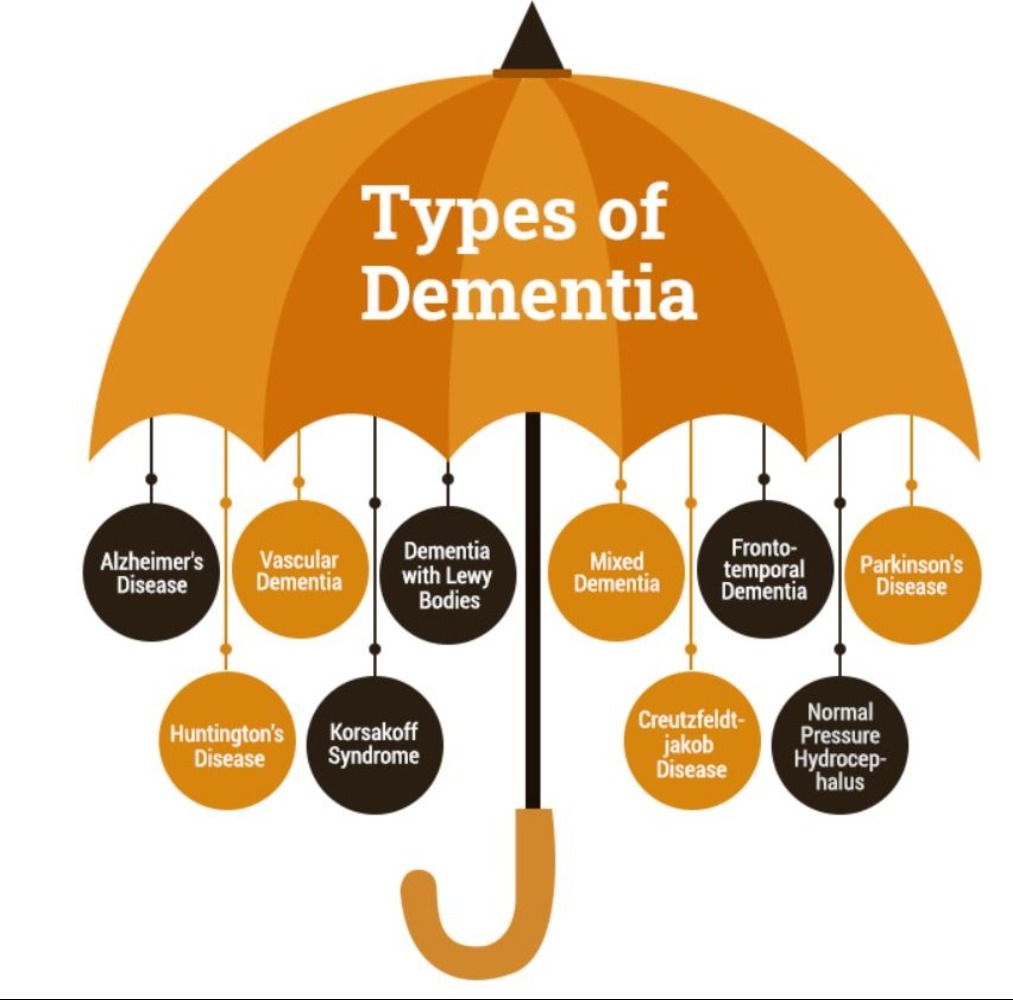
Pic: Social Media
Types of Dementia
Dementia is caused by many different diseases or injuries that directly and indirectly damage the brain. There are almost 5 to 6 types of Dementia that can be commonly seen amongst people.
- Alzheimer’s disease, known to be one of the most common types, is usually genetic in nature. One important gene that increases risk is apolipoprotein E4 (APOE). These gene changes can be passed down from parent to child. People with Alzheimer’s disease have plaques and tangles in their brains. Plaques are clumps of a protein called beta-amyloid. Tangles are fibrous masses made up of tau protein. It’s thought that these clumps damage healthy brain cells and the fibers connecting them.
- Vascular Dementia is caused due to damage to the vessels that supply blood to the brain. Such a problem may lead to stroke or affect in other ways thus damaging the white matter of the brain. Individuals with this type have difficulty in problem-solving, loss of focus, unorganized, etc.
- Frontotemporal Dementia is a rare form of dementia that tends to occur in people younger than 60. It is associated with abnormal amounts or forms of the proteins tau and TDP-43. Break down of nerve cells, and their connection in the temporal and frontal lobes of the brain can lead to this type of Dementia. These areas are associated with personality, behavior, movement, and language.
- Lewy Body Dementia is a form of dementia caused by abnormal deposits of the protein alpha-synuclein, called Lewy bodies in the brain and is one of the most common types. Symptoms include visual hallucinations like acting out dreams in sleep and seeing invisible things, problems with focus and attention, uncoordinated or slow movements, tremors, stiffness, etc.
- Mixed Dementia is mostly found among people aged above 80 and have a history of several above-mentioned habits or diseases.
- Other Dementia can be seen in people dealing with other diseases such as Huntington’s disease (caused by a genetic change in people aged between 30 to 40), Traumatic Brain Injury (mostly in sportspersons due to repetitive head injury), Parkinson’s disease (related to the nervous system), Creutzfeldt-Jakob disease (rare brain disorder with unknown risk factors, it can be either genetic or exposure to diseased brain called cornea transplant).
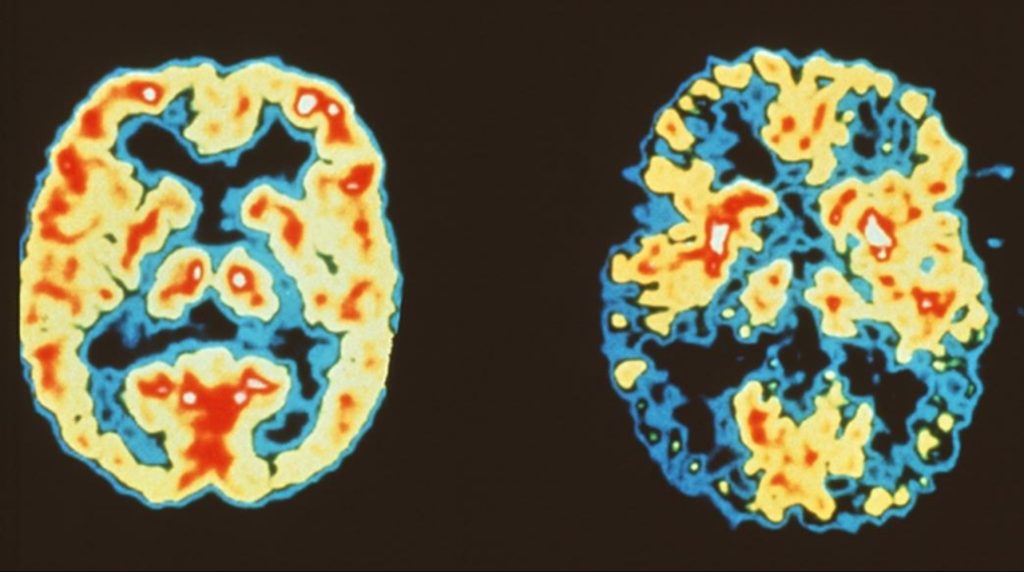
Diagnosis & Prevention
There is no sure or exact way to prevent Dementia, but there are certainly various methods to diagnose this disease.
- Cognitive and neurological tests – evaluate thinking and physical functioning, assessments of memory, problem-solving, language skills, and math skills, as well as balance, sensory response, and reflexes.
- Brain scans (CT, MRI, PET) – identify strokes, tumors, changes in the brain’s structure and function
- Genetic tests – It is important to talk with a genetic counselor before and after getting tested, along with family members and the doctor.
- Blood tests – measure levels of beta-amyloid, a protein that accumulates abnormally in people
- Psychiatric evaluation – recommended for individuals experiencing behavioral or mood changes
According to government health departments, early prevention is the best way to treat people dealing with Dementia. A few of the preventions have been listed below.
- Physical activities such as exercises, brisk walking, stretching, etc.
- Changing lifestyle or habits like quitting smoking, consumption of alcohol, etc.
- Intaking enough amount of protein, vitamins like C, D, B – Complex, etc.
- Managing cardiovascular diseases like hypertension, diabetes, cholesterol, obesity/overweightness, etc.
- Managing mental health like depression, anxiety, etc.
- Healthy eating habits like a diet rich in fruits, vegetables, whole grains, and omega-3 fatty acids (found in nuts and fishes)
- Get a good sleep cycle and if not, contact a health professional for snoring habits, shortness of breath during sleep, or stops breathing.
- Treat hearing problems by using hearing aids or getting hearing therapy.
DON’T MISS: Health issues due to social media
Treatment of Dementia
As stated earlier, Dementia doesn’t have an exact treatment but research is being done by scientists globally so that no one suffers from this disease. Experts, scientists, and physicians have introduced a few medicines that control the harshness of the disease. These are
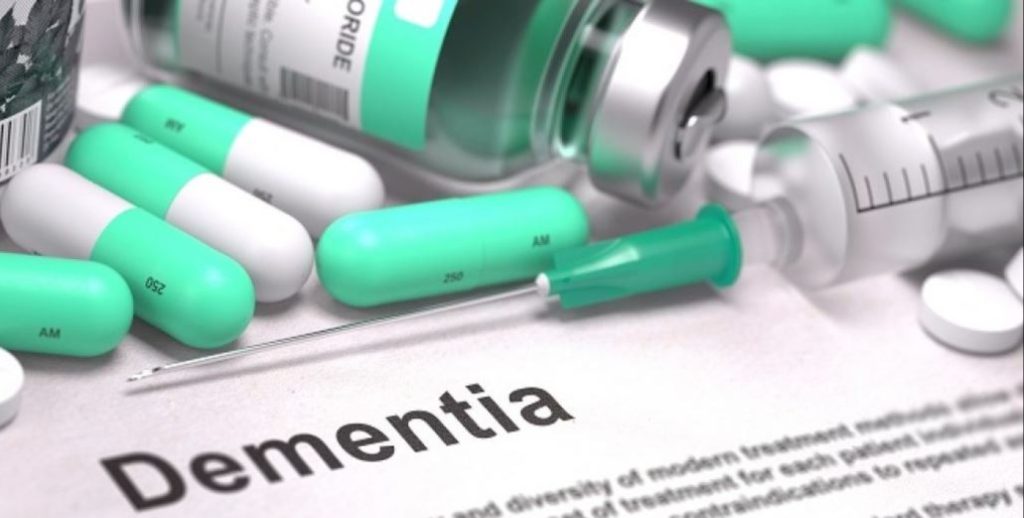
- Selective serotonin reuptake inhibitors (SSRIs) can help with severe symptoms of depression in people living with dementia if lifestyle and social changes don’t work.
- Medicines to control blood pressure and cholesterol
- NMDA receptor antagonists like memantine are used for severe Alzheimer’s disease and vascular dementia.
- Cholinesterase inhibitors like donepezil
WHO recognizes dementia as a public health priority. Early detection of symptoms is important as some causes can be successfully treated. A person with dementia may volunteer or their family members and relatives can be urged or requested to donate their brain after they have died. Brain donation helps researchers study brain disorders such as Alzheimer’s disease and other related dementias for a better future prospect in the public health service department.

